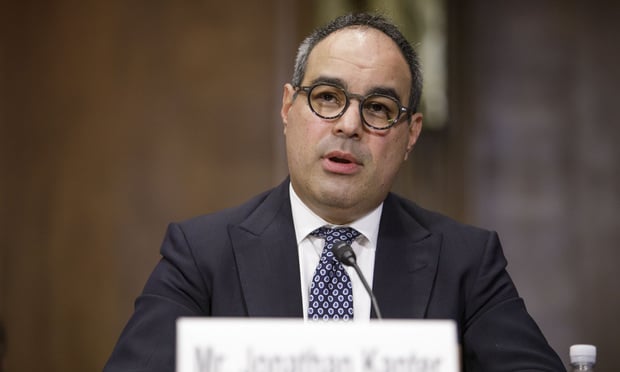Can employees who stay on the job past age65 remain enrolled in a HDHP/HSA?
|This is one of the tricky questions that older workers may poseas they delay retirement, but still need to understand what stayingon the job means for their Social Security and Medicare benefits. The answer can becomplicated.
|Health savings accounts (HSAs) are offered in tandem with groupHDHPs. HSAs were designed to act as a health care savingsvehicle and also as a way to make enrollment in HDHPs plans moreattractive. Employer and employee contributions to HSAs andearnings from HSAs are exempt from federal and state taxes (with afew exceptions).
|Disbursements from HSAs for qualified health care expenses arealso tax-exempt. However, disbursements for unqualified health careexpenses (cash disbursements) are subject to income and excisetaxes. Unused HSA balances roll over from one year to thenext and never forfeit. The HSA holder may also assign abeneficiary.
|Workers who are approaching age 65 and Medicare eligibilitydon’t necessarily want to stop receiving employer contributions ormaking their own contributions into an HSA. This is especially trueif they anticipate working for a few more years and are in goodhealth, having comparatively low out-of-pocket medical costs. HSAscan be good retirement savings accounts for olderworkers, as an HSA allows them to save forthe future, when their healthdeteriorates, health care expenses rise, and theirincome decreases.
|Employees need to understand how Medicare, HDHPs andHSAs interact in order to make informed health care decisions.Here’s what you, your clients and their employees need to know.
|Medicare and HSA contributions. Simplygaining eligibility for Medicare doesn’tdisqualify employees from staying on a high deductible plan or from contributing intoan HSA. However, enrollment in Medicare (Parts A, B,C, and/or D) disqualifies an employee from making or receivingcontributions to an HSA. Enrollment in Medicare does not impact anindividual's eligibility to enroll in the HDHP (HSAs areindependent offerings from a HDHP), or to requestreimbursements from an HSA. Note that when individuals chooseto delay enrollment in Medicare Part A at age 65,and enroll ata later date (during a special enrollment period), MedicarePart A coverage will become effective on a retroactivebasis. Medicare Part A coverage can become effective up to sixmonths earlier than the date of the request for enrollment,but not earlier than the date the individual turns age 65.
|Medicare eligibility and Medicare secondarypayer rules: If an employee enrolls inMedicare and the organization has 20 or more employees, theorganization’s plan is the primary payer. It pays first and Medicare payssecond. When the plan is primary payer, there is minimalcoordination of coverage between the plan and Medicare. For thisreason, employees should consider remaining covered under theemployer plan over Medicare. However, if an organization has fewerthan 20 employees, Medicare will be primary payer. If theemployee chooses to waive enrollment in Medicare and remainenrolled in the group health plan, the insurance carrier willprocess claims taking Medicare into account, exposing employees tovery high out-of-pocket expenses. This means most employees aged 65or older working for employers with less than 20employees, should consider enrolling in Medicare over theemployer plan. However, if employees choose to enroll inboth Medicare and the HDHP, they are no longer eligible tocontribute to an HSA or receive contributions, as enrollment in Medicare disqualifiesemployees from contributing to HSAs.
|What receiving Social Security benefits means to HSAholders. Workers receiving Social Security benefitsare automatically enrolled in Medicare Part A ifthey have contributed 40 quarters into Medicare. Whenthey choose to receive Social Security benefitssix months past the full retirement age of 66, Social Securitygives six months of benefits in “back pay.” As enrollment inMedicare Part A is associated with Social Security benefitpayments, the employee will be enrolled in Medicare Part Aretroactively, six months before the request to receive SocialSecurity benefits. The retroactive enrollment in Medicare Part Adisqualifies employees from contributing to or receivingcontributions to an HSA, and subjects them to six months of taxpenalties. To avoid penalties, older workers should be advised tostop contributing to their HSA account six months before applyingfor their Social Security benefits.
|Opting out of Medicare. If older workersat organizations employing 20 or more employees enroll in MedicarePart A without understanding what it means to theireligibility to contribute to an HSAs, they can withdraw theirMedicare enrollment as long as they have not yet applied to receiveSocial Security benefits. Doing so will not subject them topenalties, and they will be allowed to reenroll inMedicare Part A at a later time.
|The disability factor. People ondisability are automatically enrolled in Medicare after their 25thdisability check from Social Security. When they return to work,their disability payments stop, but the Medicare entitlementextends for 93 months. If their employer offers an HSA that’s tiedto a high deductible plan, they are thus ineligible to enroll in orreceive or make contributions to an HSA. Opting out ofMedicare Part A once on disability isunlikely.
Complete your profile to continue reading and get FREE access to BenefitsPRO, part of your ALM digital membership.
Your access to unlimited BenefitsPRO content isn’t changing.
Once you are an ALM digital member, you’ll receive:
- Critical BenefitsPRO information including cutting edge post-reform success strategies, access to educational webcasts and videos, resources from industry leaders, and informative Newsletters.
- Exclusive discounts on ALM, BenefitsPRO magazine and BenefitsPRO.com events
- Access to other award-winning ALM websites including ThinkAdvisor.com and Law.com
Already have an account? Sign In
© 2024 ALM Global, LLC, All Rights Reserved. Request academic re-use from www.copyright.com. All other uses, submit a request to [email protected]. For more information visit Asset & Logo Licensing.








